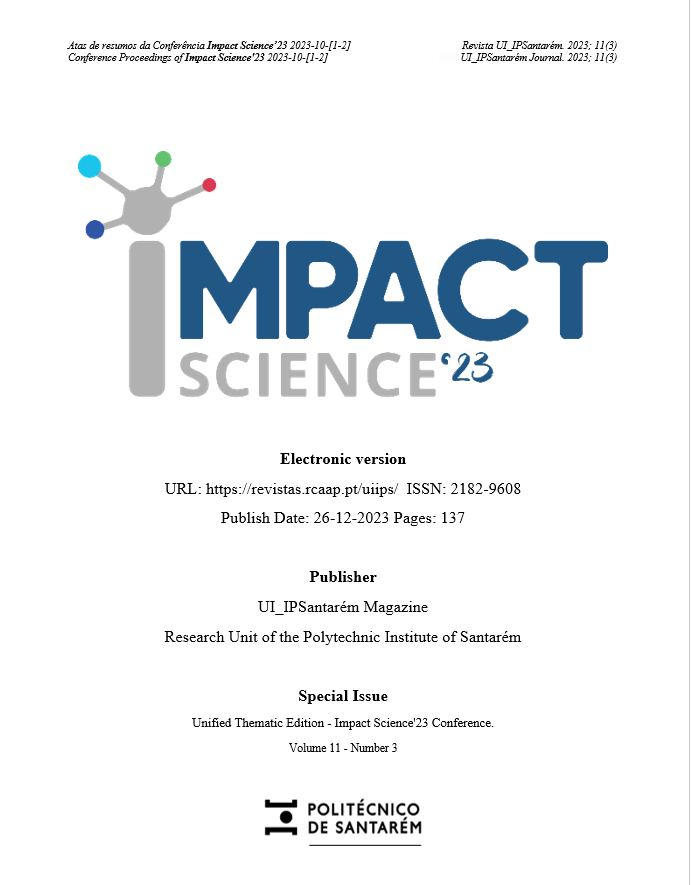On the way to sustainability: OASIS framework for assessing agroecological transition
DOI:
https://doi.org/10.25746/ruiips.v11.i3.32497Keywords:
agroecology; OASIS; RedeSusTERRA; training; lighthouse farmsAbstract
The agroecological transition aims to respond to the paradigm of adapting the productive capacity of agricultural systems to the growing need to provide safe and healthy food without compromising natural resources, ecological processes, and biodiversity. Agroecology is not a new approach, having been identified in the scientific literature since the 1920s and expressed in family farming practices, in grassroots social movements for sustainability and in public policies in several countries around the world. It has recently gained prominence on the agenda of international institutions. The concept and its principles are aligned with 15 of the 17 Sustainable Development Goals and with the European Union's thematic strategies, including the Green Deal, Farm to Fork and Biodiversity. This growing convergence of ideas has reinforced the importance of agroecology as a fundamental pillar for achieving a more sustainable future. Thus, it becomes increasingly important to assess the position and progress of farmers and companies in relation to agroecological performance. This assessment can be supported by appropriate indicators, which are normally structured in the form of performance characterization, evaluation, and evolution references. Of note is the OASIS - Original Agroecological Survey Indicator System [1], which makes it possible to assess the farm at a given time and monitor its progress towards an agroecological model. In this way, it is an essential tool to support farmers, also enabling data collection and statistical analysis over large geographical areas. Additionally, it allows mapping progress in the implementation of agroecological practices, at local, regional, national, and global levels. It can also support a certification system that communicates/informs the stakeholders about the agroecological transition of the farmer and the exploration and, in this way, support the commercialization of its products in the market. It is essential that this indicator system is robust so that it can be applied to a wide range of farms and contexts, that it allows returning reliable results and that evaluators can be easily trained. OASIS was developed by the Agroecology Europe team in 2018 and encompasses five main dimensions: Agroecological practices, Economic viability, Socio-political aspects, environment and biodiversity, and resilience, organised into 15 themes and 56 criteria. The criteria are scored on a semi-quantitative scale from 1 to 5. The results are presented in reports with radar charts and short qualitative descriptions. The first version of OASIS was tested in Kyrgyzstan and later in several geographical areas in Southern Europe. As part of the RedeSusTERRA project, the reference is being tested in Portugal, in the Centre, West, Tagus Valley and Alentejo Coast regions, to validate the robustness of the tool. The aim is to analyse the agricultural system in an integrated way, in co-creation with the farmer (decision maker). This communication describes the work of adapting the criteria and scale of this reference to the specificities of the farmers and the target territory of the project. It is intended to study different ways that farmers can choose and train them in the transition to agroecology, making lighthouse farms able to inspire other farmers.
Downloads
Published
How to Cite
Issue
Section
License
Copyright (c) 2023 Paula Ruivo, Maria Godinho, Mafalda Ferreira, Rosa Coelho, Ana Nunes

This work is licensed under a Creative Commons Attribution-NonCommercial-NoDerivatives 4.0 International License.
Authors publishing in this journal agree to the following terms:
Authors retain copyright and grant the journal the right of first publication, with the article simultaneously licensed under the Creative Commons Attribution License that allows sharing of the work with acknowledgement of authorship and initial publication in this journal.
Authors are permitted to enter into additional contracts separately for non-exclusive distribution of the version of the article published in this journal (e.g., publish in an institutional repository or as a book chapter), with acknowledgment of authorship and initial publication in this journal.
Authors have permission and are encouraged to publish and distribute their work online (e.g., in institutional repositories or on their personal webpage) at any point before or during the editorial process, as this may generate productive changes, as well as increase the impact and citation of the published work.



